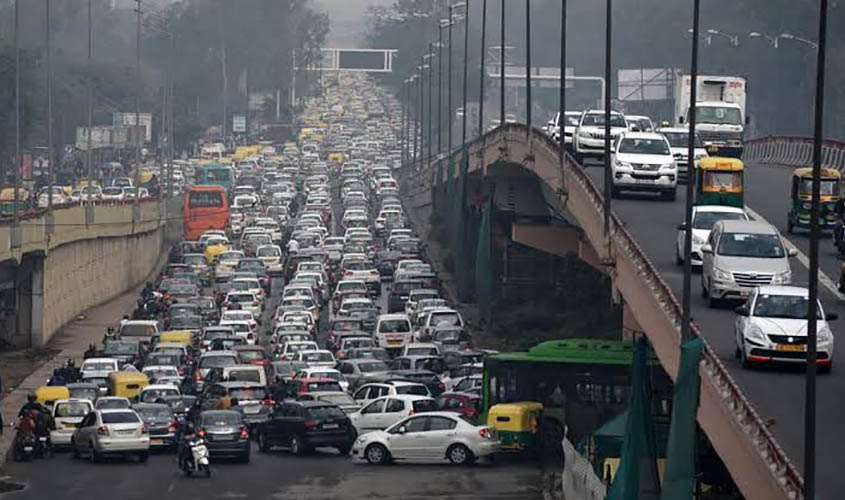For over a month, news regarding acute pollution in the national capital has been dominating the headlines. A blame-game has kicked-off between the Aam Aadmi Party (AAP) which heads the government in Delhi, the Bharatiya Janata Party (BJP), and the Congress. The AAP is condemning the dispensations in Punjab and Haryana for not initiating adequate steps to cease the stubble burning by farmers while the BJP and the Congress are accusing Arvind Kejriwal and his team, of exhibiting last minute concern over a matter that needed, from the very beginning, pressing attention.
In fact, it is the collective failure of all the political parties, the bureaucracy and to some extent, the judiciary if pollution levels have reached such alarming proportions. The city which has an infrastructure to provide civic amenities to around 10 million people has through unofficial estimates, a population of over 30 million. In addition, the entire NCR region, including Ghaziabad, Noida, Faridabad, Gurgaon, Kondli and some other areas, account for probably, an equal number of people, if not more.
In short, there could be external factors that contribute to the vitiating and toxic atmosphere in the capital but the main malaise lies within. There is an urgent need to decongest Delhi, for which obviously, political parties and human rights groups would not be prepared; the city is bursting at its seams, and no effort, by either the Centre or the local authorities, has been made to check the inflow of people from other states. According to rough estimates, nearly five lakh people come to Delhi every year, and an equal number are born, through the existing population.
A few years ago, a study conducted by a well-known NGO had concluded that more than half the population that lives in the capital does not have a permanent roof over its head. In other words, they live in the open or in unauthorised dwellings. In the process, this segment of society is exposed to all kinds of hazards and dangers, including diseases, besides a looming physical threat to their existence. The reason for their coming here was to make a living since conditions in their native places were far from satisfactory. However, the greener pastures they came looking for in Delhi have eluded them, and they have virtually become prisoners of the circumstances. Even when it dawns on them that they would have been better off in their villages, they have no means to go back.
This is where the Central and Delhi government must step in and take a pragmatic view. To expect them to do so immediately may be foolhardy since the Delhi Assembly elections are expected in the first quarter of next year, and no political party would like to do something which could prove suicidal. After all, these people have voting cards and would play a major role in the election of the next government despite the fact they have no resources to sustain themselves on.
However, once the polls are over, there should be a plan that should be put into motion, so that migrants who wish to return home are provided the facilitation to do so. The main issue here is that the plight of many such people would have been far better if they had not come to the capital in search of a better way of life; since truth is staring them in the face, they may be prepared to go back.
More than three decades ago, the Central government had come out with a plan of creating Satellite townships around Delhi, under the aegis of a National Capital Region Board, which used to be headed by a full-fledged Secretary. The main objective of this Board was to provide facilities in these townships so that migration into the city was kept under check. These Satellite boroughs were meant to provide minimum wages identical to those of Delhi. The NCR Board was expected to have frequent meetings between senior functionaries of states around Delhi including Haryana, Rajasthan and Uttar Pradesh. Over a span of time one hears next to nothing regarding the deliberations of this critical department of the Centre. Both this idea and department need to be reactivated.
Human Right or Civil Liberty groups may argue that no one should be prevented from coming to Delhi since every Indian citizen has a right to live or pursue a career wherever he or she chooses. The issue is that there are certain privileges of even those who have lived in the city over a long time. The question is not of depriving anyone of getting an opportunity
The larger matter being: those who reside here have to bear the brunt and those who relocate here also suffer. If the hardships of one section can be reduced by voluntary return facilitated by the government, where is the problem? Former Chief Executive Councillor, the late Jag Parvesh Chandra used to say, that, “Delhi is everyone’s mistress but no one’s wife”. A city can only have a better life, if those living there consider it their sole home and hearth. Between us.

